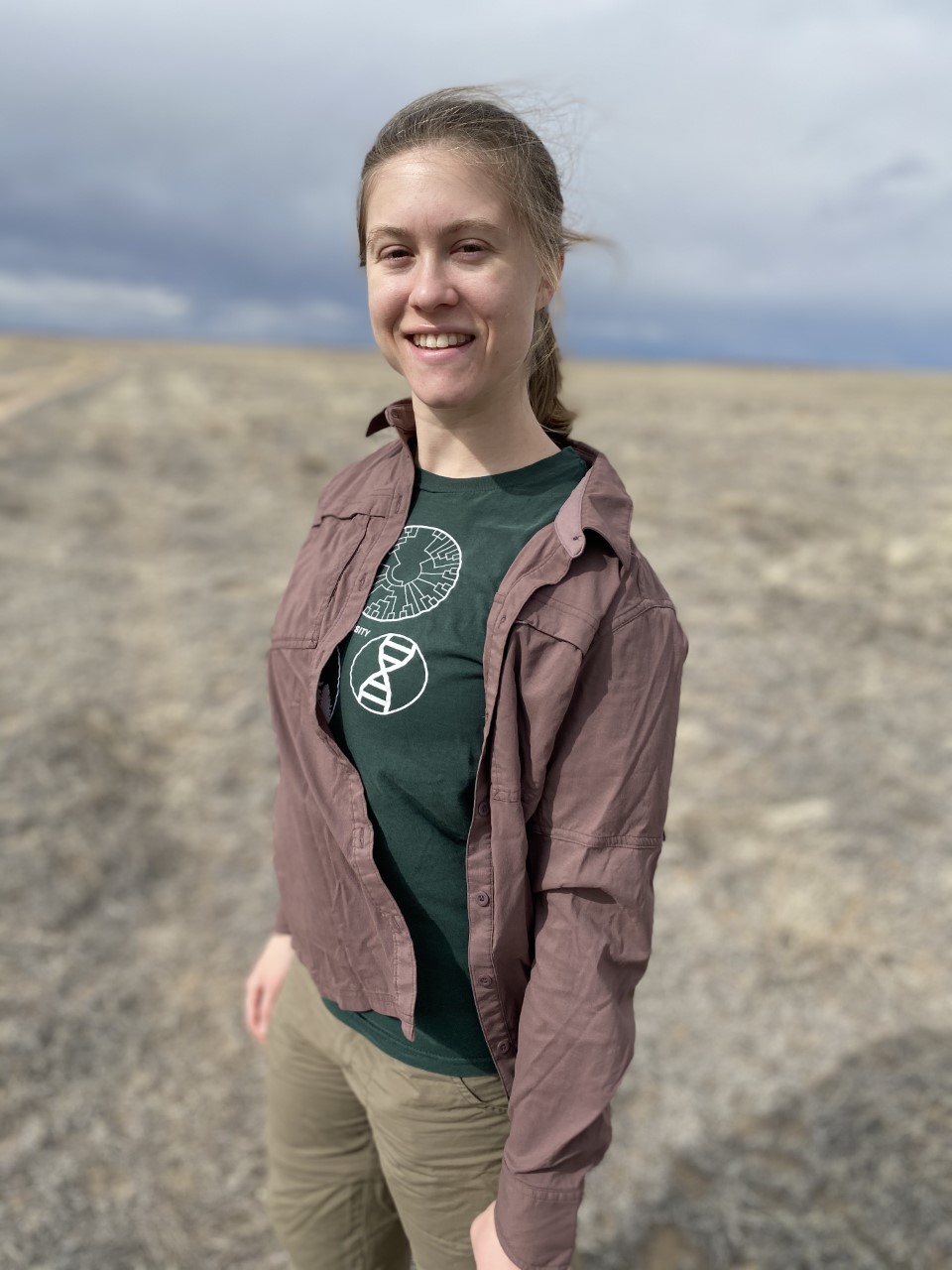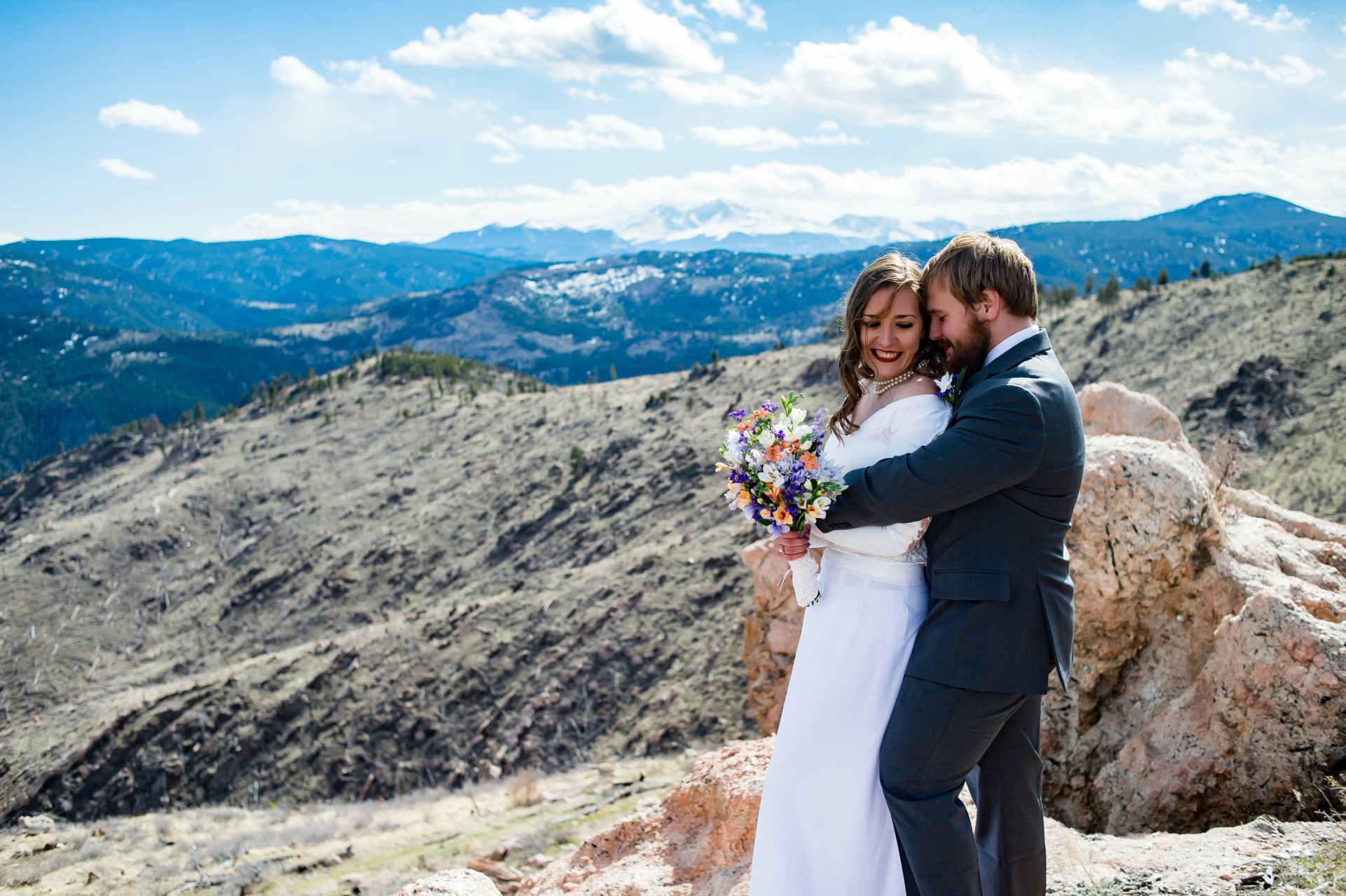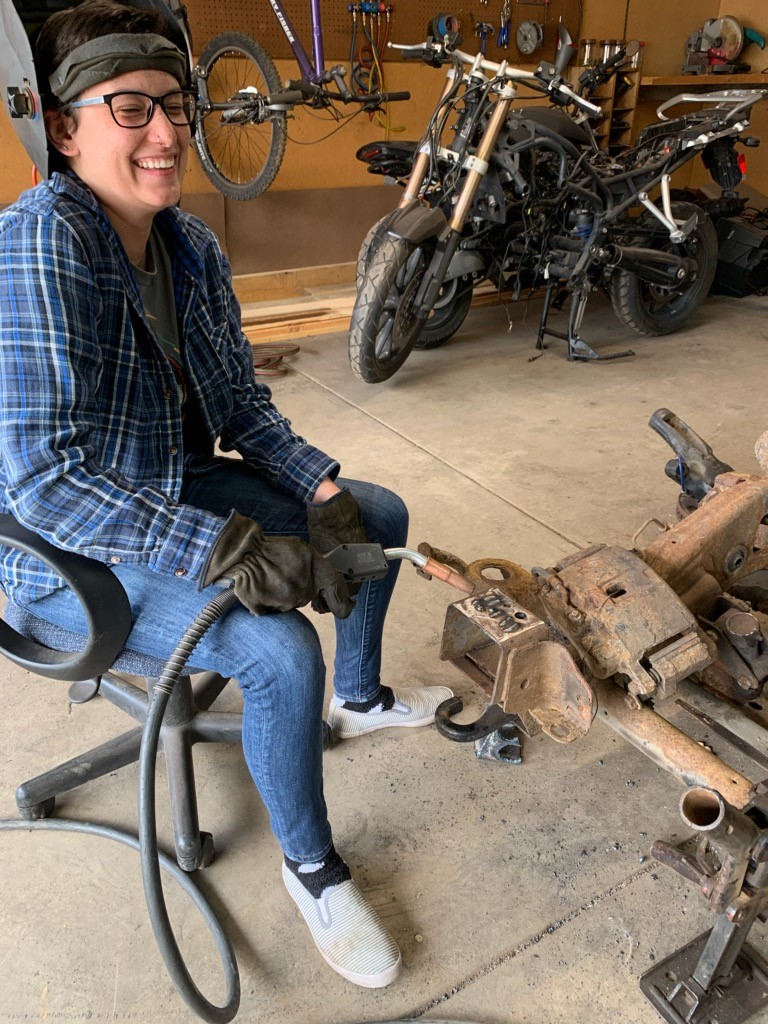Earning a Ph.D. from the kitchen table
OVPR graduate research fellows reflect on learning in the face of a pandemic. by Ty Betts published July 14, 2020With a cheap, beat-up flute purchased from a pawn shop, Colby Evans used the extra time spent at home these past few months to learn how to restore an instrument he loves to play.
“If I can refurbish it right, I might be able to sell it. But I might mess it up with this being my first time,” Evans said, a Ph.D. student in the Department of Chemistry at Colorado State University.
Evans’ new skillset is just one of a number of additional skills and hobbies that the latest cohort of Office of Vice President for Research Graduate Student Fellows has acquired since the COVID-19 pandemic while studying from home.
Now, as research operations are in the process of returning to campus, the OVPR fellows reflect on the unexpected turn in their spring semester, and what they learned during this time, research-related or otherwise.
Heading home
In March, when the CSU community had to transition to remote courses and operations, researchers had to postpone experiments and fieldwork or refocus efforts on coronavirus research. For Ph.D. students, this meant a pause to their projects.
For Paige Ostwald, a Department of Biology doctoral student, it meant saying goodbye to her zebrafish — a fish species with translucent embryos that has allowed her to study genetic heart defects.
“Any of my work — I just had to pretty much stop,” Ostwald said. “Thankfully, we have people who take care of our fish for us, so they were well taken care of.”
The pause in lab experiments offered Ostwald time to dig into the literature and start writing a review paper, a valuable skillset that’s difficult to find time for normally. “I’ve just been reading, reading, reading — so I’ve learned a lot,” Ostwald said.

Not only were research labs temporarily shut down, but field research as well. Alison Post, who is pursuing a Ph.D. in ecology, was mentoring a first-year doctoral student who had to forgo a field season of data collection at the Pawnee National Grasslands. Post, who studies how grasslands respond to climate change, is fortunate to have already collected the data she needed for her paper and is now in the writing process.
Post also was a teaching assistant and lab instructor for an undergraduate plant biology course and had to work quickly with her colleagues to take the hands-on lab course and adapt it to be taught entirely online.
“That was difficult,” Post said. “We ended up making it work, but you can imagine putting a lab class online is really hard.”
Daniel Corbin researches ways to manufacture plastic with solar energy and regularly makes use of lab space and equipment. Thankfully, Corbin was wrapping up the last of his experiments when the stay-at-home orders were issued. He has been able to take the time to submit and start revisions to his journal article along with writing a book chapter related to their research.
“It was also a good opportunity to dive into the literature and brush up on some background and fundamentals,” Corbin said.
Time for self

Kaylee Clark got married atop a mountain in Roosevelt National Forest.
Kaylee Clark took some time to get married on a mountain top in Roosevelt National Forest.
Clark, a Ph.D. student researching ways to create low-cost biosensors for people with diabetes, was among the many couples who had to cancel their wedding plans. But it didn’t stop her from hiking up a mountain in her custom-sewn wedding dress to one of her favorite places.
“At first I was upset, but it turned out really nice and cute as just the two of us,” said Clark, who still plans to have a celebration when it’s safer for people to gather again.
But while many hold off on trips and large gatherings, there are other ways to fill the time.
“As cliché as it is, I took up baking,” said Alexandra Koegel, a Ph.D. student in the Department of Chemistry. Koegel is researching ways to make artificial white light — the rays that are emitted from phones and computer screens. Koegel’s latest experiment was cinnamon rolls, which she jokingly said turned out ugly but still delicious.
Post’s lab team used baking to exercise their competitive side by recreating the Netflix baking competition Nailed It. During a group video call, each participant had two hours to bake a three-layer cake with a scientific twist. The aptly named, “Soil Horizons Cake” had to represent the underground layers of Earth as accurately as possible.
“We baked three layers that were all different colors and decorated it with ‘roots’ growing through the soil,” Post said. But regardless of how they turned out, Post thought it was a great way to maintain a sense of community while the group was apart.
There and back again
As labs reopen on campus, there is a sense of excitement to get back to work and an eagerness among students.
Many labs are establishing shifts to minimize the number of people in a laboratory at once. Evans’ lab has three shifts per day, each lasting about four hours, which has come with a learning curve.
“If you get a chance to come into lab and work, you must be efficient,” Evans said.
But there is an aspect to this workflow that Evans enjoys. He said when he’s in the lab, his full attention is on completing experiments and collecting data during a limited timeframe, but when he leaves, he allows himself to take a break from academia to enjoy a bike ride or grab a coffee.
During the stay-at-home period, Evans discovered the benefits of taking time to think more deeply about philosophy and his emotions, something he plans to maintain moving forward.
“Taking time each week to think about the way you feel and why you feel that way can be really beneficial,” Evans said, emphasizing the importance emotional intelligence has to our mental well-being, especially during times like these.

Koegel has found this time spent at home to be a learning experience as well. Graduate school certainly has a hefty workload, and at times, Koegel has felt pressure to constantly be working, but at home, there are some things you just can’t work on.
“In graduate school, it’s easy to feel guilty when you’re not working, and I think this experience will hopefully shift this mindset a little bit,” Koegel said.
As for the research these rams are involved with, returning to campus will enable them to continue their research and finish their degrees on a high note. The scientific community has shown its resiliency during this pandemic and the ability for researchers to rise to the occasion has been inspiring.
For Corbin, this experience has shown that the scientific community is one that he is proud to be a part of as he furthers his education.
“It’s been really cool being in science at this time and watching how communities are adapting. It’s definitely pretty impressive,” Corbin said. “Seeing how quickly the scientific community has changed directions and mobilized to combat COVID-19 has been really special to see and be a part of.”
Vice President for Research Graduate Fellows Program
The VPR Graduate Fellows Program at Colorado State University was created by the Vice President for Research to support excellence in graduate research and to promote interdisciplinarity at the university by engaging the best and brightest students from graduate programs across the institution.
Learn more at research.colostate.edu/vpr-fellows-program.